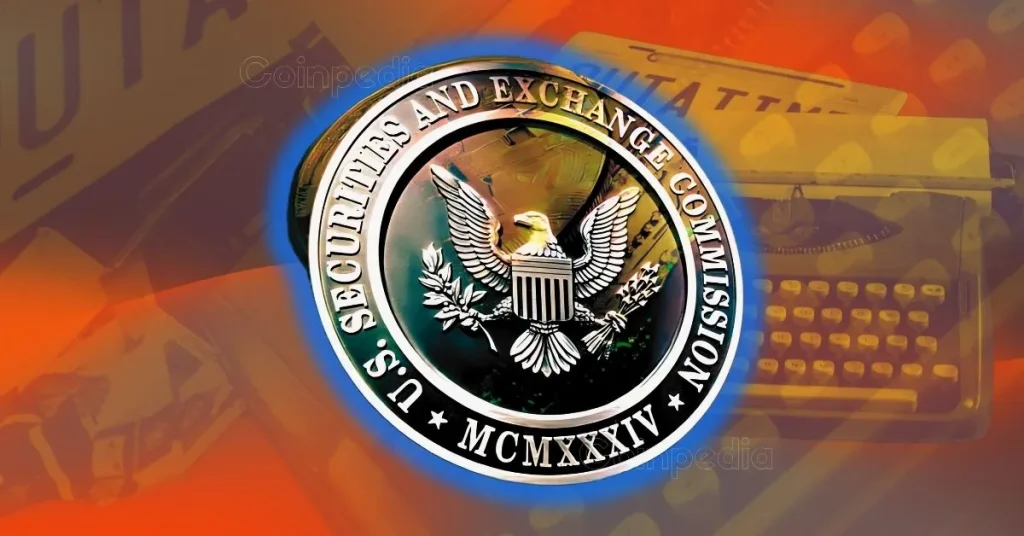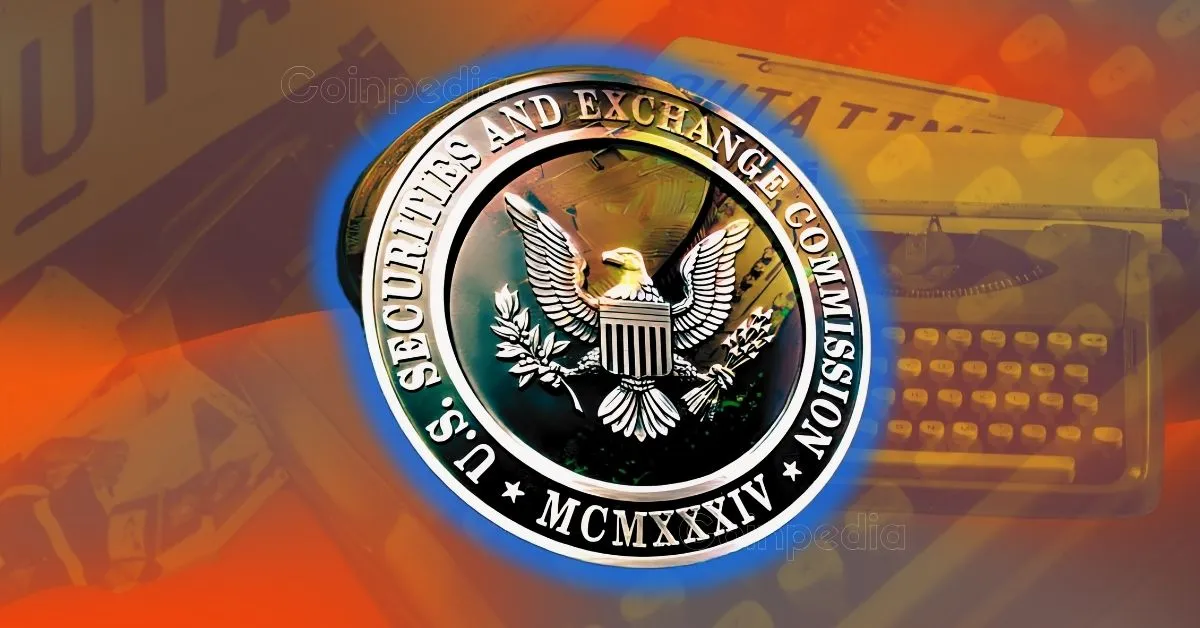
The SEC’s “Crypto on the Road”: A Comprehensive Analysis of Regulatory Engagement with Crypto Startups
Introduction: Bridging the Gap Between Regulation and Innovation
The cryptocurrency landscape is evolving at an unprecedented pace, presenting both opportunities and challenges for regulators. The U.S. Securities and Exchange Commission (SEC) has recognized the need for a more nuanced approach to crypto regulation, particularly for small startups that are often at the forefront of innovation. The SEC’s “Crypto on the Road” initiative is a strategic response to this need, aiming to foster a more inclusive and informed regulatory framework. This report delves into the origins, objectives, and potential impact of this initiative, highlighting its significance in shaping the future of crypto regulation.
The Genesis of “Crypto on the Road”: A Response to Regulatory Gaps
The “Crypto on the Road” initiative is rooted in the broader context of “Project Crypto,” a visionary program introduced by former SEC Chair Paul Atkins. “Project Crypto” seeks to reimagine the regulation of crypto assets, with a focus on transitioning more of the financial system “on-chain.” The “Crypto on the Road” roundtables serve as a critical component of this project, providing a direct channel for the SEC to engage with crypto startups and gather valuable insights.
Commissioner Hester M. Peirce, a vocal advocate for crypto innovation, has been instrumental in shaping this initiative. She has emphasized the importance of including voices from outside of Washington, D.C., in policy-making discussions. The “Crypto on the Road” tour is a direct response to this need, bringing the conversation to crypto communities across the nation. This approach ensures that the SEC can gather feedback from a diverse range of stakeholders, including those who may not have been able to attend spring meetings in D.C.
The 10-City Tour: A Strategic Approach to Engagement
The “Crypto on the Road” tour is strategically planned to cover a diverse range of geographical locations and crypto hubs within the United States. The tour begins in Berkeley, California, a well-known incubator for technological innovation. Subsequent stops include major cities like Boston, Dallas, Chicago, and New York, before expanding to other towns. This geographical distribution ensures that the SEC can gather feedback from a wide spectrum of crypto ventures, reflecting the varied regional landscapes of the industry.
The tour is scheduled to run from August through December, providing ample time for the SEC to engage with startups and gather comprehensive feedback. This extended timeline also allows for a more thorough analysis of the insights gathered, ensuring that the SEC can develop a well-informed regulatory framework.
Focus on Small Crypto Startups: Addressing Unique Challenges
The SEC’s decision to focus on small crypto startups is particularly noteworthy. These early-stage ventures often operate with limited resources and face unique challenges in navigating the complex regulatory landscape. By engaging directly with these startups, the SEC aims to gain a deeper understanding of their needs, concerns, and innovative approaches to blockchain technology.
Several aspects of the small crypto startup experience are likely to be explored during these roundtables:
Access to Capital: Overcoming Funding Challenges
Small startups often struggle to secure funding, and regulatory uncertainty can further exacerbate this challenge. The SEC will likely explore how its regulations impact startups’ ability to attract investment and what can be done to foster a more supportive environment. This could include simplifying the compliance process, providing clearer guidance, and creating more flexible regulatory frameworks that accommodate the unique needs of small startups.
Regulatory Compliance: Simplifying the Process
Navigating the complex web of securities laws and regulations can be particularly burdensome for small startups with limited legal resources. The SEC will likely seek feedback on how to simplify the compliance process and provide clearer guidance to startups. This could involve developing more user-friendly regulatory guidelines, offering educational resources, and creating dedicated support channels for startups.
Innovation and Experimentation: Balancing Regulation and Innovation
Small startups are often at the forefront of blockchain innovation, experimenting with new technologies and business models. The SEC will likely explore how its regulations can accommodate and encourage innovation without compromising investor protection. This could involve creating regulatory sandboxes, providing exemptions for certain types of experiments, and fostering a culture of innovation within the regulatory framework.
Market Manipulation and Fraud: Mitigating Risks
While small startups are often driven by innovation, they are also vulnerable to market manipulation and fraudulent schemes. The SEC will likely address these risks and seek input on how to effectively detect and prevent such activities. This could involve developing more robust monitoring systems, implementing stricter enforcement measures, and creating educational programs to raise awareness among startups.
The Crypto Task Force: Charting a New Regulatory Approach
The Crypto Task Force, leading the “Crypto on the Road” initiative, plays a pivotal role in shaping the SEC’s overall approach to crypto asset regulation. The task force collaborates with Commission staff and the public to chart a new approach to the regulation of crypto assets. Its scope encompasses a broad range of assets, including those colloquially referred to as digital assets, crypto assets, cryptocurrencies, digital coins, and tokens, as well as the underlying protocols.
The Task Force’s goals are multifaceted:
Developing a Comprehensive Regulatory Framework
The task force aims to create a clear and consistent regulatory framework for crypto assets, providing greater certainty for businesses and investors. This involves developing comprehensive guidelines, clarifying existing regulations, and ensuring that the regulatory framework is adaptable to the rapidly evolving crypto landscape.
Protecting Investors: Mitigating Risks
Investor protection is a paramount concern for the SEC, and the task force will develop strategies to mitigate the risks associated with crypto assets, such as fraud, manipulation, and volatility. This could involve implementing stricter disclosure requirements, enhancing market surveillance, and creating more robust enforcement mechanisms.
Promoting Innovation: Fostering a Supportive Environment
While prioritizing investor protection, the task force also recognizes the importance of fostering innovation in the crypto space. It will seek to strike a balance between regulation and innovation, ensuring that regulations do not stifle the development of new technologies and business models. This could involve creating regulatory sandboxes, providing exemptions for certain types of experiments, and fostering a culture of innovation within the regulatory framework.
Enforcing Existing Laws: Ensuring Compliance
The task force will actively enforce existing securities laws against those who engage in fraudulent or manipulative activities involving crypto assets. This involves developing more robust monitoring systems, implementing stricter enforcement measures, and creating educational programs to raise awareness among startups.
The Potential Impact: Shaping the Future of Crypto Regulation
The “Crypto on the Road” initiative has the potential to significantly impact the future of crypto regulation in the U.S. By directly engaging with small startups and gathering feedback from a diverse range of stakeholders, the SEC can develop more informed and effective regulations. This could lead to a more supportive regulatory environment for crypto innovation, attracting investment and fostering growth.
The success of “Crypto on the Road” hinges on several factors:
Active Participation: Encouraging Engagement
The willingness of small crypto startups to actively participate in the roundtables and share their experiences and perspectives is crucial. The SEC must create an environment that encourages open and honest dialogue, ensuring that startups feel comfortable sharing their concerns and ideas.
Open Dialogue: Fostering Trust
The SEC must foster an environment of open and honest dialogue, encouraging participants to voice their concerns and ideas without fear of reprisal. This involves creating a safe space for discussion, ensuring that all voices are heard, and demonstrating a genuine commitment to addressing the concerns raised.
Meaningful Integration of Feedback: Translating Insights into Action
The SEC must demonstrate a commitment to meaningfully integrating the feedback gathered during the roundtables into its regulatory framework. This involves developing clear action plans, implementing changes based on the feedback received, and communicating these changes effectively to the crypto community.
Conclusion: A Road Toward Balanced Crypto Regulation
“Crypto on the Road” represents a significant step forward in the SEC’s efforts to engage with the crypto industry and develop a comprehensive regulatory framework. By prioritizing dialogue with small startups, the SEC signals its commitment to understanding the unique challenges and opportunities presented by this rapidly evolving sector. The success of this initiative will depend on active participation, open dialogue, and a genuine commitment to integrating feedback into future regulations. The journey ahead is complex, but “Crypto on the Road” offers a promising path toward achieving a balanced regulatory environment that protects investors while fostering innovation in the crypto space, laying the foundation for a resilient and responsible digital future.





